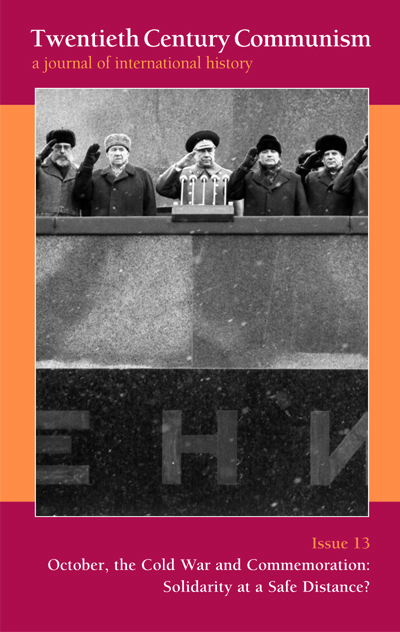
The international echoes of the commemorations of the October Revolution (1918-1990)
Twentieth Century Communism - Print ISSN 1758-6437 - Online ISSN 2978-1329
Volume 2017 Number 13
The international echoes of the commemorations of the October Revolution (1918-1990)
Jean-François Fayet
Abstract
Commemorations express a political will to remember, a process that relies on establishing a mythologised historical referent. The Russian Communists were aware of the importance of this instrument for the implantation of a regime whose legitimacy was contested both domestically and abroad, and proceeded therefore to construct a new collective memory through the reordering of time around the regime’s founding act: the great socialist revolution of October. From 1918 on, 7 November was a day of celebrations: speeches, military parades, orderly marches, inaugurations of public monuments and commemorative plaques, political carnivals, mass spectacles, and popular parties that united the peoples and territories of the Soviet Union in celebration of October.1 In addition to their domestic role in fostering unity, providing legitimacy, and facilitating internal mobilisation, commemoration practices also supported the regime’s international eminence, especially when it presented itself as a model for world revolution.
To cite this article
Jean-François Fayet (2017) The international echoes of the commemorations of the October Revolution (1918-1990), Twentieth Century Communism, 2017(13)
